Choose the correct word translation «an environment»:
окружающая среда
разрушение
свалка
загрязнение
Translate to English «выбрасывать на свалку»:
a dump
to dump
to poison
to cause
When the Americans decided to clear up the Statue of Liberty?
1987
1999
1963
1986
Match the words and their translations.
to pollute 1. перерабатывать
to recycle 2. окружающая среда
to protect 3. загрязнять
environment 4. защищать
Make used combinations:
global 1. rain
greenhouse 2. warming
acid 3. effect
ozone 4. layer
Complete the sentence right «The gradual rise in the Earth’s temperature is known as …»
acid rain
ozone layer
global warming
greenhouse effect
Complete the sentence right «Rain mixed with toxic chemicals from factories is known as …»
greenhouse effect
ozone layer
acid rain
global warming
Match the words in the left column with their meaning in the right column.
1) the land surface on which we live and move about
2) the soil and rocks on the earth’s surface
3) the substance on the surface of the earth in which plants grow
4) an area of ground that is used for a particular purpose such as farming or building
a) soil
b) land
c) ground
d) earth
Choose an adjective, antonym of the word “dangerous”.
poison
waste
safe
destruction
Translate to English «Разрушение, уничтожение живой природы».
To endanger people’s lives.
To test nuclear waste.
To solve the environmental problems.
Destruction of wildlife and countryside beauty.
Ответы.
a
b
d
a-3, b-1, c-4, d-2
a-2, b-3, c-1, d-4
c
c
1-d, 2-b, 3-a, 4-c
d
Опубликовано 19.10.17 в 19:42
«Environmental protection». Test 1
1 Choose the correct word translation «an environment»:
a) окружающая средаb) разрушениеc) свалкаd) загрязнение
2 Translate to English «выбрасывать на свалку»:
a) a dumpb) to dumpc) to poisond) to cause
3 When the Americans decided to clear up the Statue of Liberty?
a) 1987b) 1999c) 1963d) 1986
4 Match the words and their translations.
a) to pollute 1.перерабатыватьb) to recycle 2.окружающая средаc) to protect 3.загрязнятьd) environment 4.защищать
5 Make used combinations:
a) global 1. rainb) greenhouse 2. warmingc) acid 3. effectd) ozone 4. layer
6 Complete the sentence right «The gradual rise in the Earth’s temperature is known as …»
a) acid rainb) ozone layerc) global warmingd) greenhouse effect
7 Complete the sentence right «Rain mixed with toxic chemicals from factories is known as …»
a) greenhouse effectb) ozone layerc) acid raind))global warming
8 Match the words in the left column with their meaning in the right column.
1) the land surface on which we live and move about
2) the soil and rocks on the earth’s surface
3) the substance on the surface of the earth in which plantsgrow
4) an area of ground that is used for a particular purpose such as farming or building
a) soil
b) land
c) ground
d) earth
9 Choose an adjective, antonym of the word “dangerous”.
a) poisonb) wastec) safed) destruction
10 Translate to English «Разрушение, уничтожение живой природы».
a)To endanger people’s lives.
b)To test nuclear waste.
c)To solve the environmental problems.
d)Destruction of wildlife and countryside beauty.
Test 2
“Environmental Protection”
Find the synonyms
1. garbage a) danger b) litter c) bin
2. to save a) to help b) to prohibit c) to avoid
3. human being a) nature b) man c) animal
4.to throw away a) to recycle b) to get rid of c) to avoid
5. rubbish a) trash b) packaging c) can
6. to protect a) to prohibit b) to pack c) to save
2.Complete the sentences using the right word:
1. He wants to become an ecologist himself to research and protect the _______.
a) environment b) pollution c) packaging
2, however, our beach has become more polluted with____ left by tourists and locals.
a) litter b) pollution c) recycling
3.Your family can begin trying to _____ the Earth right now.
a) to solve b) to know c) to protect
4.Why is litter so____ in forests?
a) environmental b) dangerous c) fascinating
5.Environmental protection is an __________ problem.
a) easy b) important c) pleasant
6.Many scientists try _____________ ecology problems.
a) to solve b) to know c) to protect
7.People must _____________ aluminium cans, newspapers.
a ) solve b) recycle c) save
8.Ecology is a science which studies ___________ .
a) environment b) the relationship between people c) recycling
поделиться знаниями или
запомнить страничку
- Все категории
-
экономические
43,632 -
гуманитарные
33,652 -
юридические
17,917 -
школьный раздел
611,700 -
разное
16,898
Популярное на сайте:
Как быстро выучить стихотворение наизусть? Запоминание стихов является стандартным заданием во многих школах.
Как научится читать по диагонали? Скорость чтения зависит от скорости восприятия каждого отдельного слова в тексте.
Как быстро и эффективно исправить почерк? Люди часто предполагают, что каллиграфия и почерк являются синонимами, но это не так.
Как научится говорить грамотно и правильно? Общение на хорошем, уверенном и естественном русском языке является достижимой целью.
Слайд 1
Методическая разработка упражнений по теме «Защита окружающей среды» для 7 класса (этап совершенствования знаний) Министерство образования и науки РФ Федеральное агентство по образованию ГОУ ВПО « Удмуртский государственный университет » филиал УдГУ в г. Воткинске
Слайд 2
Упражнения для совершенствование лексики. environ ment conser vation pol lution atmo sphere evo lution scien tist smok ing rain forest pro tect pro blem green house bage gar green peace radia tion contai ner “Halves of the word”.
Слайд 3
Make the words from the letters. cyrecle gedarn magade gyerne ransportt tillopuno vienmerontn maalni lutpole ricualgtreu rgoudn rihbroel “Missed letters”. re_uce con_erva_ion Ea_th or_ani_ation pro_ec_ion ma_mals na_ure co_tinen _ disa_pe_r pro_lems dan_er li_te _
Слайд 4
Translate it. загрязнять окружающую среду – повреждать деревья – беспокоить диких животных – выбрасывать мусор – охранять природу – сократить загрязнение – обижать животных – мусор – рубить молодые деревья – использовать заново бутылки – перерабатывать макулатуру – сажать деревья – Find out the translation of the words and word combinations. the ozone layer – the greenhouse effect – carbon dioxide – holes in the sky – aerosol cans – the ultraviolet radiation – oxygen – rain forest – plastic products –
Слайд 5
Упражнения для работы с определениями слов 1. pollution a. oxygen in the form of molecules with three atoms, created by exposure of oxygen to electrical discharge or ultraviolet radiation, having a sharp smell, and being an effective oxidant for use in bleaching and sterilizing. 2. ozone b. the natural environment of plant or animal. 3. poacher c. contaminating material that pollutes. 4. conservation d. the continuous modification and adaptation of organisms to their environments through selection, hybridization, and the like. 5. evolution e. a haze caused by effect of sunlight on foggy air that has been polluted by vehicle exhaust gases and industrial smoke. 6. smog f. the mass of gases surrounding the earth or any other celestial body. 7. habitat g. a substance used to kill insects. 8. atmosphere h. one who illegally hunts on another’s property. 9. insecticide i . the warming trend on the surface and in the lower atmosphere of a planet, held by scientists to occur when solar radiation is trapped, as by emissions from the planet. 10. greenhouse effect j. the part of the earth and its atmosphere in which living organisms can exist. 11. biosphere k. the act of preserving and protecting from loss, destruction.
Слайд 6
Упражнения для работы с текстом
Слайд 7
Задания к тексту Match the words in Column A with the words or phrases in Column B that best describe them. Column A Column B stinky a) _ to throw down, unload sulphate b) _ insect, bug acid rain c) _ every day to figure out d) _ a chemical pest e) _ to cheer for single f) _ to learn how daily g) _ bad smell to root for h) _ sulphate mixed with clouds to dump i ) _ one True or False? Many U.S. cities have dirty air. Most of the states in America don’t have laws against air pollution. Scientists are looking for ways to make factories and cars run cleaner. Sulfates come out of coal-burning factories only in America. Nobody cares about acid rain. All of the lakes and rivers in America are polluted. Energy is renewable. Pesticides can often be found in food. Cars don’t cause air pollution. In 1993, each person in The United States threw away 45 pounds of trash a day. Everyone should throw away less trash.
Слайд 8
Упражнения, где нужно вставить слова pollution, rubbish, cans, environment, packaging, protect, is thrown, in danger, prohibited, pollute, bins, clearing up. People get a lot of food from the sea. Nevertheless, we have made the sea a very dirty place. If we are not careful ………. will kill many of the animals and plants in the sea. A lot of rubbish ………. into the sea. Sea animals, fish and birds are ………. . Some animals try to eat the ……….. , they die. Oil from the ships, chemicals and waste ……….. the sea and kill whales and dolphins, fish and sea birds. Luckily, many people realize now that we must look after the sea and ………. it. They say polluting the sea should be strictly……….. Groups of people who care about the ………. spend their free time clearing up litter from the beaches. People collect ……….. , bottles and ………. and put them into different ………. for further recycling.
Слайд 9
Упражнения на проверку знаний
Слайд 10
Упражнение на исправление ошибок Don’t off swim animals country right All these signs are not right. Correct them. Choose the necessary words from the box.
Слайд 11
Грамматические задания These species are in danger. Match the descriptions with the pictures. Fill in the sentences with the correct forms of the verbs. Example: 1) – a) 8 big cats are killed to make one fur coat.
Данная разработка упражнения подготовлена для организации урока повторения по теме «Защита окружающей среды» для 7 класса (этап совершенствования знаний). Представлены разнообразные упражнения для отработки лексики по теме, грамматического материала по темам: Present Simple, Passive Voice, Articles and Prepositions. Упражнения разного типа: подборка ответов, вставить пропущенные слова, соотнести определение и слово, чтение текста и выполнение заданий к нему, раскрыть скобки, перевод предложений….
Поделитесь с коллегами:
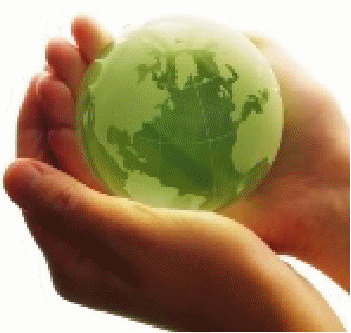
Методическая разработка упражнений
по теме: «Защита окружающей среды»
для 9 класса
(этап совершенствования знаний)
Exercises
-
«Halves of the word».
blem
pro
pol
green
gar
green
tect
-
Make the words from the letters.
cyrecle gedarn
magade gyerne
ransportt tillopuno
vienmerontn maalni
lutpole ricualgtreu
rgoudn rihbroel
-
«Missed letters».
re_uce con_erva_ion
Ea_th or_ani_ation
pro_ec_ion ma_mals
na_ure co_tinen_
disa_pe_r pro_lems
dan_er li_te_
-
Translate it.
-
загрязнять окружающую среду —
-
повреждать деревья —
-
беспокоить диких животных —
-
выбрасывать мусор —
-
охранять природу —
-
сократить загрязнение —
-
обижать животных —
-
мусор —
-
рубить молодые деревья —
-
использовать заново бутылки —
-
перерабатывать макулатуру —
-
сажать деревья —
-
Find out the translation of the words and word combinations.
-
the ozone layer —
-
the greenhouse effect —
-
carbon dioxide —
-
holes in the sky —
-
aerosol cans —
-
the ultraviolet radiation —
-
oxygen —
-
rain forest —
-
plastic products —
-
Match
-
Smoking causes a) skin cancer and sunburn.
-
Air pollution can cause b) living beings and pollute environment.
-
Ultraviolet radiation c) heart disease.
-
Chemicals kill d) bad for our health.
-
Pesticides are e) serious environmental and health problems.
-
Rainforest take f) take carbon and dioxide produce oxygen.
-
Match the vocabulary words on the left with the definitions on the right.
-
pollution
-
oxygen in the form of molecules with three atoms, created by exposure of oxygen to electrical discharge or ultraviolet radiation, having a sharp smell, and being an effective oxidant for use in bleaching and sterilizing.
-
ozone
-
the natural environment of plant or animal.
-
poacher
-
contaminating material that pollutes.
-
conservation
-
the continuous modification and adaptation of organisms to their environments through selection, hybridization, and the like.
-
evolution
-
a haze caused by effect of sunlight on foggy air that has been polluted by vehicle exhaust gases and industrial smoke.
-
smog
-
the mass of gases surrounding the earth or any other celestial body.
-
habitat
-
a substance used to kill insects.
-
atmosphere
-
one who illegally hunts on another’s property.
-
insecticide
-
the warming trend on the surface and in the lower atmosphere of a planet, held by scientists to occur when solar radiation is trapped, as by emissions from the planet.
-
greenhouse effect
-
the part of the earth and its atmosphere in which living organisms can exist.
-
biosphere
-
the act of preserving and protecting from loss, destruction.
-
Match the definitions given below with the words from the box.
acid rain the greenhouse effect habitat
a poacher smog evolution
trophy nitrogen oxides atmosphere
conservation endangered species ozone
pollution nuclear power station biosphere
insecticide a reserve national park
rainforest extinct
-
The protection of the biosphere from destruction________________
-
A species which is in danger of becoming extinct________________
-
The very slow process by which living creatures change and become increasingly suited to the place where they live__________________
-
No longer in existence anywhere on the Earth___________________
-
The process by which the Earth is heated when the atmosphere traps heat from the Sun_________________
-
The place where a plant or animal naturally lives and grows____________
-
A chemical which is used by people to kill insects________________
-
An area of open land set aside by a government specially for the conservation of wildlife_________________
-
A mixture of gases in car exhausts which contribute to pollution and acid rain________________
-
An electricity-generating station which uses radioactive fuel to drive the generators______________
-
A gas in the Earth’s atmosphere produced in small quantities near the ground when sunlight shines on polluted air. It is more common very high up in the atmosphere______________
-
A person who kill wildlife illegally to make money__________________
-
The contamination of the environment by substances harmful to living creatures________________
-
A rich woodland habitat which occurs in regions of warm climate and high rainfall_________________
-
An area of land in which wildlife is protected from hunting and collecting__________________
-
Part of a dead animal used for decoration or exhibition_______________
-
Polluted air consisting of a mixture of fog, smoke and sulphur dioxide___________________
-
The part of the Earth which contains all living creatures________________
-
The mixture of gases which surrounds a planet or a star________________
-
Rain made acid by falling in polluted air_________________
-
If you arrange the letters in the right order you will read an English proverb that you know.
-
True or false?
-
We face no problems nowadays.
-
Ecological problems are problems of some countries.
-
Millions of people in the world suffer from smoking.
-
Scientists first discovered the ozone holes in 1985.
-
The ozone layer holes aren’t getting bigger.
-
Trees produce carbon dioxide.
-
To stop the greenhouse effect problem we shouldn’t use different aerosols.
-
The greenhouse effect is good for our planet.
-
The ultraviolet radiation helps those who live in cold climate.
-
Rainforests make the breathing process difficult.
-
Read and do the exercises.
-
Match the words in Column A with the words or phrases in Column B that best describe them.
Column A Column B
-
stinky a) _ to throw down, unload
-
sulphate b) _ insect, bug
-
acid rain c) _ every day
-
to figure out d) _ a chemical
-
pest e) _ to cheer for
-
single f) _ to learn how
-
daily g) _ bad smell
-
to root for h) _ sulphate mixed with clouds
-
to dump i) _ one
-
True or False?
-
Many U.S. cities have dirty air.
-
Most of the states in America don’t have laws against air pollution.
-
Scientists are looking for ways to make factories and cars run cleaner.
-
Sulfates come out of coal-burning factories only in America.
-
Nobody cares about acid rain.
-
All of the lakes and rivers in America are polluted.
-
Energy is renewable.
-
Pesticides can often be found in food.
-
Cars don’t cause air pollution.
-
In 1993, each person in The United States threw away 45 pounds of trash a day.
-
Everyone should throw away less trash.
-
Fill in all the gaps
pollution, rubbish, cans, environment, packaging, protect, is thrown, in danger, prohibited, pollute, bins, clearing up.
People get a lot of food from the sea. Nevertheless, we have made the sea a very dirty place. If we are not careful ………. will kill many of the animals and plants in the sea. A lot of rubbish ………. into the sea. Sea animals, fish and birds are ………. . Some animals try to eat the ……….. , they die. Oil from the ships, chemicals and waste ……….. the sea and kill whales and dolphins, fish and sea birds.
Luckily, many people realize now that we must look after the sea and ………. it. They say polluting the sea should be strictly……….. Groups of people who care about the ………. spend their free time clearing up litter from the beaches. People collect ……….. , bottles and ………. and put them into different ………. for further recycling.
-
Choose the correct word to fit into each sentence. Make necessary changes.
-
to pollute, pollution a) The water ____ here. You cannot swim.
b) This factory ____ the air.
c) Fish die because of water ____.
-
to protect, protection a) You can ____animals if you send money to
the World Wildlife Fund.
b) The _____of animals is the aim of the World Wildlife Fund.
3) to recycle, recyclable a) Buy only_____goods.
b) Can you _____these plastic containers?
4) to collect, collection a) His _____of stamps is very big.
b) He _____toy animals.
-
Choose a synonym from the box for the underlined words in each sentence. Make necessary changes.
to collect to damage to get clever rubbish to have wood
-
How long do you think litter lasts? Circle the correct answer.
-
Can you recognize different kinds of flowers? If you can, name six varieties here.
-
Do you know a tree by the shape of its leaves? Write the name of the tree.
-
All these signs are not right. Correct them. Choose the necessary words from the box.
Don’t off swim animals country right
-
What happens if we don’t think about nature?
Cars produce gases. They add to the greenhouse effect. So the air is polluted.
We throw away too much and in the wrong places. We fill the world’s seas with rubbish. The water … … .
Paper comes from trees. If we use a lot of paper, a lot of trees … … .
Some things that people use for fishing kill animals. If people leave them near the river or sea, animals … … .
If you don’t keep to public paths in the countryside, birds and animals … … .
-
A lot of things around us are made of metals. What came first: iron or steel? Fill in the sentences with the correct form of the verbs.
Copper and tin (use) were used before iron: they melt at a lower temperature, and can be mixed to form a useful metal called bronze.
Iron (get) _______ first from meteorites, around 3000 BC (5,000 years ago). Later, iron (get) _______from iron ore (руда) around 2000 BC. The iron (heat) ______first, then (cool) _______. Finally, the iron (heat) ______again and (shape) ______ into tools.
Later, in India, people found out how to make fires hot enough to melt iron (at a temperature of 1,539 oC). This made it possible to produce steel. Steel (make) ______from iron. Steel is harder than iron, and it does not break as easily. Every motorist is the owner of a ton of steel.
-
These species are in danger. Match the descriptions with the pictures. Fill in the sentences with the correct forms of the verbs.
Example: 1) — a) 8 big cats are killed to make one fur coat.
-
Make sentences.
-
must, protect, we, nature.
-
think, I, can, children, animals, help.
-
is, it, important, the Earth, to save.
-
be in charge, should, we, of the planet.
-
healthy, people, keep, must, our planet.
-
Fill in is or are.
1. When the air … polluted, climate … changed.
2. When paper … not recycled, forests … cut down.
3. When the glass bottles … left in the forest, people and animals … hurt.
4. Animals … disturbed.
5. Water … polluted.
6. Birds … not fed.
7. Nature … damaged.
8. Trees … cut down.
9. Air … spoilt.
10. Litter … recycled.
-
Put the verbs into the Present Passive Voice.
1) We (to ask) not to throw away litter. It’s wise. It helps to reduce pollution.
2) Boys and girls (to advise) to collect paper, cans, carton. It’s important. It helps to reuse them.
3) I (to remember) to reduce electricity and water. It’s helps to economize them.
4) His parents (to say) to put litter in a bin. It’s not silly. It helps not to spoil the environment.
5) Our class leader (to allow) to organize environment groups. It’s great. It helps not to destroy wildlife.
6) She (to tell) to raise money to save animals. It’s not bad. It helps her to care them.
7) My friend (to make) not to leave the fire in the forest. It’s brilliant. It helps him not to spoil forest.
-
Read and fill in articles.
There are ___ lot of problems at ____ beginning of ____ new century. The problems to be urgently solved are: ethnic conflicts, ____ growing world population and ____ ecological crisis.
The first two problems are not so vital because they are logical ones. Ecological crisis is our mutual problem. No country can be isolated and independent because we share ____same climate system.
____environment needs to be protected. Millions of people on our planet suffer air, water and land pollution: cars, factories and plants produce wastes that poison the atmosphere and cause ____ holes in ____ sky. Scientists first discovered ____hole in 1982. Now it’s getting bigger. Man-made chemicals (CFCs) destroy ____ ozone layer. The ozone layer stops the ultraviolet radiation from the sun which causes sunburn and skin cancer. CFCs come from fridges, air-conditioners, aerosol cans and from ____ manufacture of some plastic products. There’s another problem..We breathe out carbon dioxide. During ____ last century we have produced a lot of it. ____sun warms ____atmosphere and then some of the heat escapes back into space. But the carbon dioxide doesn’t allow it to get out. The atmosphere becomes warmer.
It is called ____greenhouse effect and it is dangerous for all ____living-beings. Some scientists think that it’ll make ____world hotter and change the climate all over ____ world.
Trees take carbon dioxide from ____ air and produce oxygen. Big rainforests are very helpful. But parks and gardens in our cities also help us. We should remember that trees can help ____ Earth and try not to destroy them. That’s why we should be kind to birds and animals, they protect large and small forests from complete destruction.
-
Fill in the prepositions.
Our planet Earth is our home. It’s big and nice. There are a lot ____ forest, mountains, rivers, lakes, seas and oceans. The forests are full ____ animals.
The oceans are full of fishes. We live because we breathe air, drink water and eat food, growing ____ our planet. ____ hundreds of years nature has been serving people. They didn’t think ____ it. Industrial progress has caused certain ecological problem. Factories and plants put waste ____ the atmosphere and water. Air in big cities is awful because of transport. Forests are burnt ____ fires caused by careless people. A lot of animals and birds are killed or die ____ them.
Chemical wastes kill fish ____ the rivers, lakes, seas and oceans. Can we solve the problem ____ pollution? Yes, if we plant trees.
They clean air ____ our cities. We mustn’t make fires in the forests.
We must help animals and birds and not disturb wildlife.
Nature riches will not last forever. It’s our duty to do our best to protect the environment.
-
Complete the dialogue using the phrases from the box.
Has the hole increased since that time?
Let’s hope for the best. Thank you for the interview.
Why did it happen?
What’s the way out?
I’ve heard that there’s the hole in the ozone layer over Antarctica.
Journalist: …
Ecologist: Yes, but some scientists predicated it about 20 years ago!
Journalist: …
Ecologist: It’s simple. Chemicals have caused the hole in the ozone layer — the atmosphere between 10 and 60 km above the Earth.
Journalist: …
Ecologist: Yes, and what’s more it’s getting bigger and bigger.
Journalist: …
Ecologist: 30% of CFCs come from aerosol cans, 30% from fridges and air conditioning, and 34% from the manufacture of some plastic products. So we should change something.
Journalist: …
-
Translate into English.
-
Вам не разрешается рвать цветы в лесу.
-
Нам говорят перестать разводить костры в парке.
-
Меня просят покормить птиц зимой.
-
Миллионы деревьев повреждают, вырубают и сжигают во время лесных пожаров.
-
Много мусора, макулатуры и контейнеров перерабатываются в нашем городе.
-
Я не знаю, почему оставляют мусор во дворах.
-
Группы по защите окружающей среды организуются в Великобритании.
Vocabulary
acid rain — кислотный дождь
adaptation — адаптация
advise — советовать
aerosol cans — баллон с аэрозолем
aerosols — аэрозоли
agriculture — сельское хозяйство
air — воздух
air-conditioners — воздушные кондиционеры
aluminium cans — аллюминиевые банки
animal — животное
atmosphere — атмофера
atoms — атомы
banana peel — кожура банана
beaches — берега
bins — мусорные ведра
biosphere — биосфера
birch — береза
bleaching — отбеливание, выцветвние
blow -дуть
breathing process — дыхание
bronze — бронза
buffalos — буйволы
bug — насекомое
cans — жестяная банка
carbon dioxide — углекислый газ
celestial body — небесное тело
cheer for — подбпдривать
chemicals — химикаты
clearing up — очищать
climate — климат
coal-burning — работающий на угле
collecting — сбор, накопление
condors — кондоры
conservation — сохранение, консервирование
container — контейнер
contaminating material — загрязняющий материал
continent — континент
continuous modification — завершающее изменение
contribute — способствовать
copper — медь
countryside — сельская местность
cover — покрывать, покрытие
create — изобретать
crops — зерновые
damage — разрушать
danger — опасность
dead animal — мертвые животные
decoration — украшение, декорация
destruction — разрушение
disappear — исчезать
disturb — беспокоить, волновать
dolphins — дельфины
drop — капля, капать, падать
dump — мусор
earth — земля
ecological crisis — экологический кризис
economise — экономить
electrical discharge — электрический разряд
electricity-generating station — станции производства электричества
elephants — слоны
emissions — выделение, распространение. выход
endangered species — вымирающие виды
energy — энергия
environment — окружающая среда
ethnic conflicts — этнический конфликт
evolution — эволюция
exhaust gases — выхлопные газы
exhibition — выставка
existence — действительность, живой организм
exposure — экспозиция
extinct — вымерший
factories — фабрики
figuring out — вычислять, разгадывать
fires — костры
fix — фиксировать, отмечать
foggy — туманный
forget-me-not — незабудка
fridges — холодильники
fur coat — шуба
garbage — мусор
gasping for air — тяжело дышать
glass bottle — стекляная бутылка
government — государство
greenhouse — теплица
greenhouse effect — тепличный эффект
habitat — родина, место распространения, ареал ( животного, растения ); естественная среда
harmful — вредный
harms — вред, убыток
haze — легкий туман, иней
health — здоровье
heart disease — сердечное заболевание
heat — обогревать
holes in the sky — дыры в небе
horrible — ужасный, страшный
horse chestnut — конский каштан обыкновенный ( Aesculus hippocastanum )
hunting — охота
hybridization — скрещивание
illegally hunts — нелегальные охотники
in danger — в опасности
increasingly — в большей степени
industrial smoke — промышленный дым
insecticide — средство от насекомых
insects — насекомые
invent — изобретать
iron — железо
is thrown — выбрасывается
kangaroos — кенгуру
kill — убивать
lakes — озера
lime-tree — липа
litter — мусор
living beings — живые существа
living creatures — живые существа
mammals — млекопитающие
man-made — человеческий. сделанный человеком
maple — клен
meteorites — метеориты
mixture of gases — смесь газов
molecules — молекулы
monkey — обезьяна
motorist — мотористы
mountains — горы
mutual problem — общие проблемы
national park — национальные парки
natural — природный
nature — природа
nevertheless — несмотря ни на что
nitrogen oxides — азотные оксиды
nuclear power station — атомная электростанция
oak — дуб
occur — появляться
oil — масло
organisms — организмы
organization — организация
owner — владелец
oxidant — оксидант
oxygen — кислород
ozone — озон
ozone holes — озоновые дыры
ozone layer holes — озоносфера
packaging — упаковка
painted wooden stake — покрашенаядеревянная доска
pansy — анютины глазки
pesticides — пестициды
pests — паразиты
plant — растение, завод
plastic containers — пластиковые контейнеры
plastic products — пластиковые предметы
poacher — браконьер
poison — яд
pollute — загразнять
pollution — загрязнение
population — население
predicate — предсказывать
preserving — сохранение
problem — проблема
process — процесс
produce — производить
prohibited — запрещенный
property — имущество, собственность
protect — защищать
protecting — защита
protection — защита
radiation — радиация
radioactive fuel — радиоактивное топливо
rainforest — тропический лес
raise money — занимать деньги
recycle — повторно использовать
reduce — уменьшать
renewable — восстановимый, возобновляемый
reserve — запасать, запас
rhinos — носороги
rooting for — извлечение корня
rose — роза
rubbish — мусор, хлам
scientist — ученый
selection — выбор
sharp smell — острый запах
skin cancer and sunburn — рак кожи и солнечный ожог
small quantities — маллые количества
smog — смог
smoking — курение, копчение
snowdrop — подснежник
solar radiation — солнечная радиация
solution — растворение
soybeans — соевые бобы
spoil — разрушать
spray — спрей
steel — сталь
sterilizing — стерилизация
stinky — зловонный
substance — вещество
suffer — страдать
sulphates — сульфат
sulphur dioxide — сернистый газ
sunlight — солнечный свет
surface — поверхность
surrounding — окружающий
tools — инструменты
traffic ticket — проездной билет
transport — транспорт
trapped — захваченный
trash — отбросы, макулатура
trophy — добыча
tulip — тюльпан
turtles — черепахи
ultraviolet radiation — ультрафиолетовое излучение
urgently — скорый, срочно
vehicle — транспортное средство
violet — фиалка
wastes -отходы, потери
wax paper cup — пластиковый стаканчик
whales — киты
wildlife — живая природа
willow — ива
wooden stake — деревянная палка
woodland — лесистая местность
wool sock — шерстяной носок
Answers
-
environment, conservation, pollution, atmosphere, evolution, scientist, smoking, rainforest, protect, problem, greenhouse, garbage, greenpeace, radiation, container
-
recycle, damage, transport, environment, pollute, ground, danger, energy, pollution, animal, agriculture, horrible.
-
reduce, earth, protection, nature, disappear, danger, conservation, organization, mammals, continent, problem, litter.
-
—
-
to pollute the environment
-
to damage trees
-
to disturb wild animals
-
to throw away litter
-
to protect nature
-
to reduce pollution
-
to hurt animals
-
garbage
-
to cut down baby trees
-
to reuse bottles
-
to recycle waste paper
-
to plant trees
-
—
-
озоновый слой
-
парниковый эффект
-
углекислый газ
-
дыры в небе
-
аэрозольные баллончики
-
ультрафиолетовая радиация
-
кислород
-
тропический лес
-
изделия из пластика
-
—
-
c
-
e
-
a
-
b
-
d
-
f
-
1c; 2a; 3h; 4k; 5d; 6e; 7b; 8f; 9g; 10i; 11j
-
1.conservation; 2.endangered species; 3.evolution; 4.extinct; 5.the greenhouse effect; 6.habitat; 7.insecticide; 8.national park; 9.nitrogen oxides; 10.nuclear power station; 11.ozone; 12.poacher; 13.pollution; 14.rainforest; 15.reserve; 16.trophy; 17.smog; 18.biosphere; 19.atmosphere; 20.acid rain.
-
East or West, home is best.
-
1f; 2f; 3f; 4t; 5f; 6f; 7t; 8f; 9f; 10f.
-
1) 1-g; 2-d; 3-h; 4-f; 5-b; 6-i; 7-c; 8-e; 9-a.
2) 1-T; 2-F; 3-T; 4-F; 5-F; 6-F; 7-T; 8-T; 9-F; 10-F; 11-T.
-
Pollution, is thrown, in danger, rubbish, pollute, protect, prohibited, environment, cans, packaging, bins.
-
1) is polluted, pollutes, pollution;
2) protect, protection;
3) recyclable, recycle;
4) collection, collects.
-
2)-get; 3)-is damaged; 4)-clever; 5)-wood; 6)-rubbish; 7)-has.
-
1-a; 2-b; 3-b; 4-b; 5-c; 6-c; 7-b; 8-a; 9-a; 10-c.
-
pansy, tulip, snowdrop, rose, violet, forget-me-not.
-
oak, maple, willow, lime-tree, horse chestnut, birch.
-
Keep of the grass. Don’t feed the animals. Keep your country tidy. Turn right. Don’t drop litter here. Don’t swim here.
-
… is polluted …; … are cut down …; … are killed …; … are captured and sold in pet stores.
-
were used; was got; was got; was heated; then cooled; was heated and shaped; is made.
-
1) a — are killed; 2) d — are left; 3) h — were killed; 4) i — are killed; 5) e — are left; 6) g — were left; 7) b — were destroyed;
c — are caught; 9) f — were poisoned.
-
1) We must protect nature.
2) I think children can help animals.
3) It is important to save the Earth.
4) We should be in charge of the planet.
5) People must keep our planet healthy.
-
1-is,is; 2-is, are; 3-are, are; 4-are; 5-is; 6-are; 7-is; 8-are; 9-is; 10-is.
-
1) are asked; 2) are advised; 3) am remembered; 4) are said; 5) is allowed; 6) is told; 7) is made.
-
a; the; the; the; the; the; the; the; the; the; the; the; the; the; the; the; the; the; the; the; the.
-
Of; of; on; for; about; into; by; without; in; of; in.
Journalist: I’ve heard that there’s the hole in the ozone layer over Antarctica.
Ecologist: Yes, but some scientists predicated it about 20 years ago!
Journalist: Why did it happen?
Ecologist: It’s simple. Chemicals have caused the hole in the ozone layer — the atmosphere between 10 and 60 km above the Earth.
Journalist: Has the hole increased since that time?
Ecologist: Yes, and what’s more it’s getting bigger and bigger.
Journalist: What’s the way out?
Ecologist: 30% of CFCs come from aerosol cans, 30% from fridges and air conditioning, and 34% from the manufacture of some plastic products. So we should change something.
Journalist: Let’s hope for the best. Thank you for the interview.
-
1) You’re not allowed to pick flowers in the forest.
2) We’re told to stop making fires in the park.
3) I’m asked to feed birds in winter.
4) Millions of trees are damaged, cut and burnt during the fires in the forests.
5) A lot of garbage, waste paper and containers are recycled in our hometown.
6) I don’t know why garbage is left in the yards.
7) Environment groups are organized in Great Britain.
Список литературы
-
Клементьева Т.Б., Шэннон Д.А. Счастливый английский. Кн.2 для 7-9 кл. общеобразов. шк. — 2-е изд., испр. — Обнинск: Титул, 1999.
-
Смирнов А.В. Рабочая тетрадь по английскому языку: 7 класс: К учебнику В.П.Кузовлева и др. «English — 7″/ — М.: Издательство «Экзамен», 2005.
-
Рабочая тетрадь по английскому языку к учебнику В.П.Кузовлева и др. «English — 7», 1995.
-
Тематическое и поурочное планирование по английскому языку к учебнику В.П.Кузовлева и др. «English — 7″/ М.: Просвещение, 2002.
-
Счастливый английский. Кн.2. Учебник для 7 класса общеобразовательных учреждений / В.П.Кузовлев, Н.М.Лапа, Э.Ш.Пререгудова и др. — 4-е изд. — М.: Просвещение, 1997.
-
Новый словарь английского языка Oxford/ Дж.М.Хокинс, Э.Делаханти, Ф.Макдональд. — М.: ООО «Издательство Астрель»: ООО «Издательство АСТ», 2002.
-
«Английский язык» газета Издательского дома «Первое сентября» (16-31 март) 2007 год.
-
120 TOPICS. Сборник разговорных тем по английскому языку: Учебное пособие / А.П. Миньяр-Белоручева. — М.: Издательство «Экзамен», 2005.
-
Левицкая Ю.Э., Зубец Е.Ю., Позднеева О.В. Английский язык. Сборник заданий по работе с текстом: 6-7 классы / — М.: Издательство «Экзамен», 2006.
-
Миловидов В.А. 10 консультаций по английскому языку. — М.: Рольф: Айрис-пресс, 1999.
-
Северинова Е.Ю. Английский язык. Экспресс-курс подготовки к итоговой аттестации. 11 класс / СПб.: Тригон, 2008.
-
Северинова Е.Ю. Английский язык. Экспресс-курс подготовки к итоговой аттестации. 9 класс / СПб.: Тригон, 2008.
-
Русско — английский, англо — русский словарь.
-
festival.1september.ru
-
study.ru
-
bilingual.ru

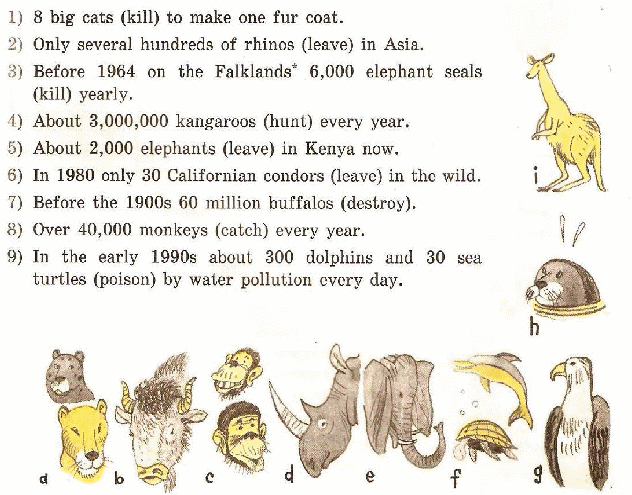
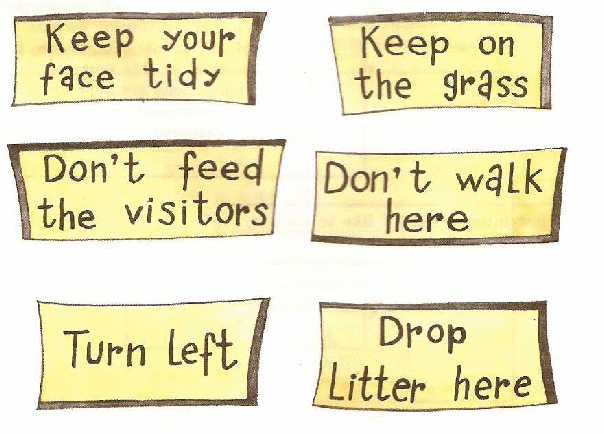
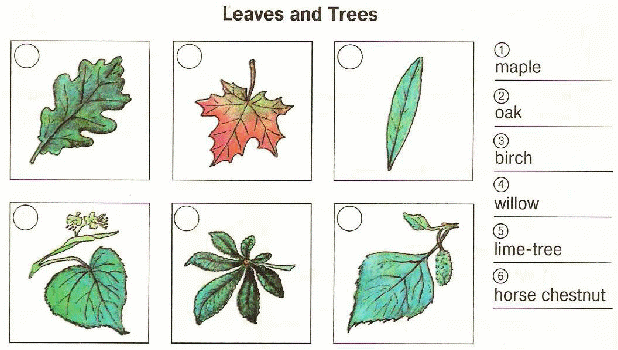
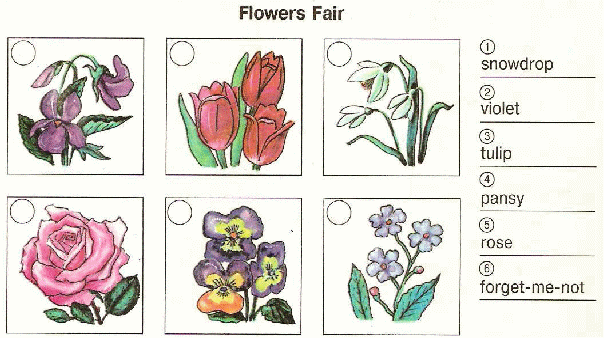
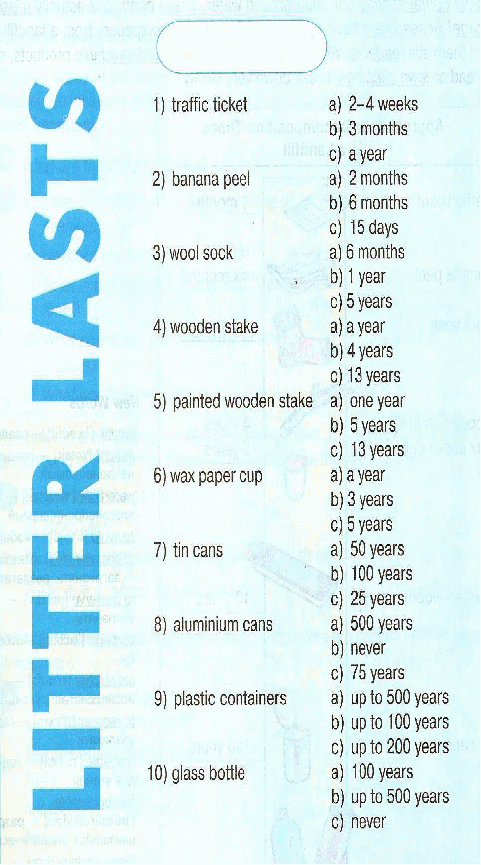

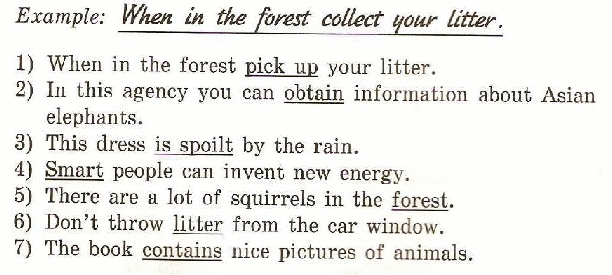
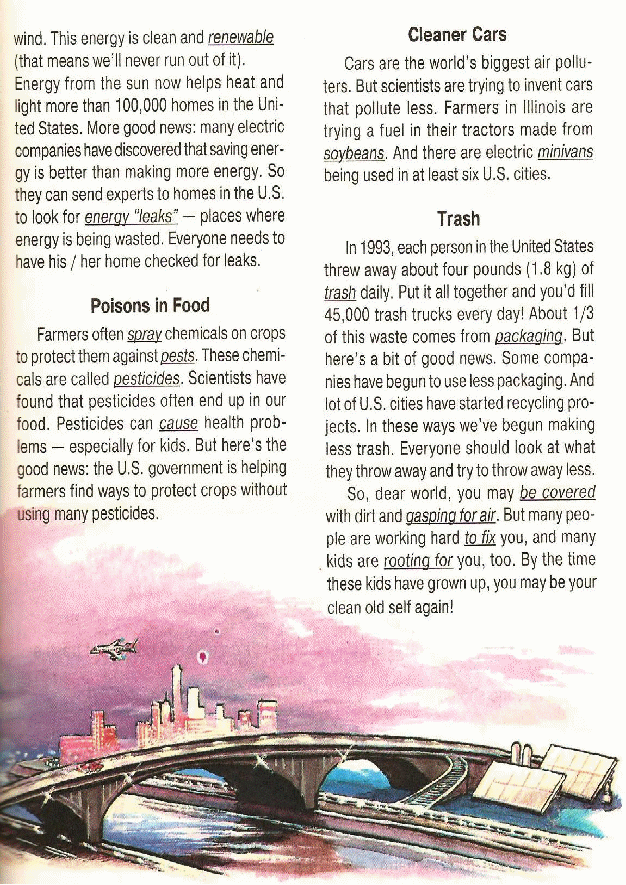
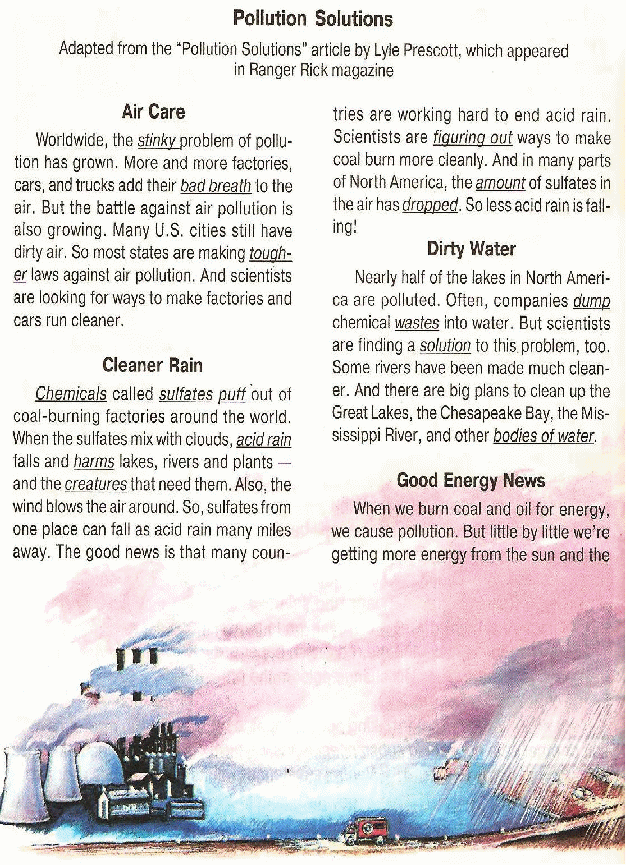
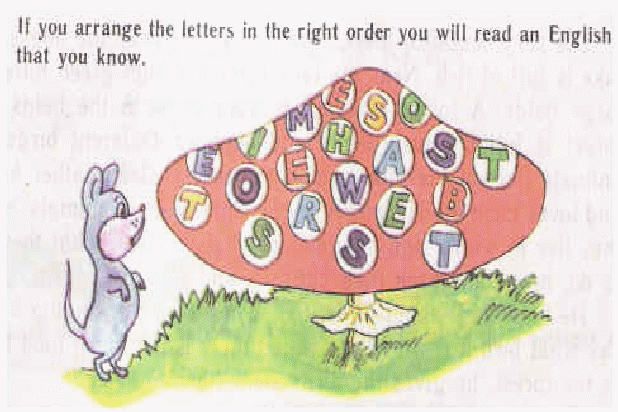
 c — are caught; 9) f — were poisoned.
c — are caught; 9) f — were poisoned.